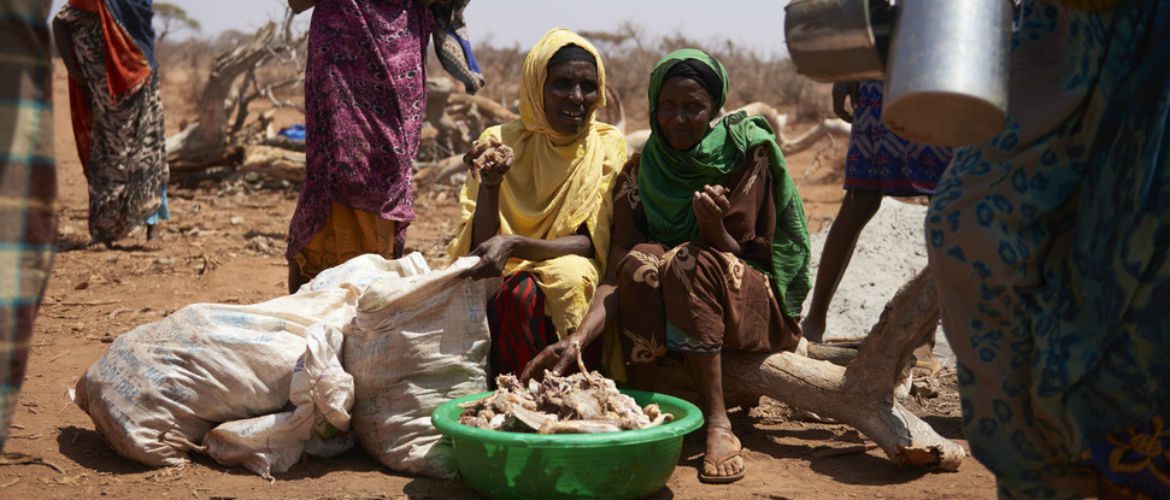Hunger in a world of plenty
The world stands on the brink of unprecedented famine. This resource allows students to examine four of the countries most at risk.
To help your students explore the issue behind the headlines, Oxfam Australia has created this presentation based on our work in South Sudan, the Lake Chad Basin, the Horn of Africa and Yemen.
Hunger in a World of Plenty includes:
- An overview of the hunger crises
- An explanation of the Integrated Food Security Phase Classification and what ‘Famine’ really means
- Stories from ‘the field’
- Suggestions of how our students can take meaningful action.
Download the resource
It’s available in two formats, PDFs of slides and a script so teachers can deliver the presentation themselves in class, or a video version to watch in class or in flipped classroom settings.
DIY presentation
Video
- Hunger in a world of plenty — part 1 and part 2
- Food security
Take action today
Famine and hunger is complicated and there is no single ‘right’ way to respond. But even though things are happening on the other side of the world, we can still help and create change.
Here are a list of powerful ways you can make a difference, both here in Australia and in the places that need it most.
- Support Oxfam’s work in countries in crisis. Hold a fundraiser at your school to help us reach more people more quickly, and prevent famine from spreading.
- Write to your Federal Member of Parliament Use our SGDs letter writing kit to tell your local politician what you’ve learnt and ask them how Australia is working towards SDG 2: Zero Hunger..
Curriculum mapping
The resource is aligned with the Australian Curriculum, and will contribute to developing your students geographical knowledge and understanding for:
Year 9: Unit 1 — Biomes and Food security
- Challenges to food production, including land and water degradation, shortage of fresh water, competing land uses, and climate change, for Australia and other areas of the world (ACHGK063)
- The capacity of the world’s environments to sustainably feed the projected future global population (ACHGK064)
Year 9: Unit 2 — Geographies of Interconnection
- The perceptions people have of place, and how these influence their connections to different places (ACHGK065)
Year 10: Unit 2 — Geographies of Human Wellbeing
- Different ways of measuring and mapping human wellbeing and development, and how these can be applied to measure
differences between places (ACHGK076) - Issues affecting development of places and their impact on human wellbeing, drawing on a study from a developing country or region in Africa, South America or the Pacific Islands (ACHGK078)
- The role of international and national government and non-government organisations’ initiatives in improving human wellbeing
in Australia and other countries (ACHGK081)
